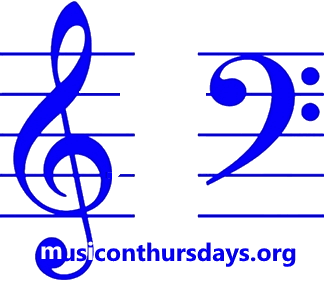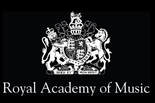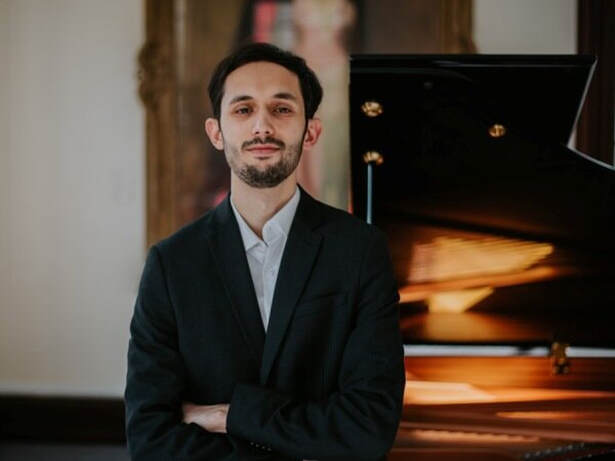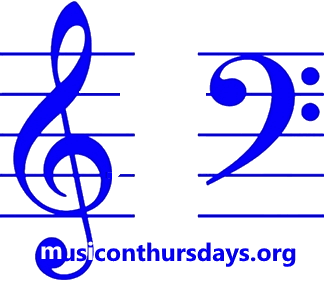Samuel Vincent
cello
Ilan Kurtser
piano
Programme
Ludwig van Beethoven (1770-1827)
Cello Sonata No 3 in A major Op 69 (1807)
1 Allegro ma non tanto
2 Scherzo. Allegro molto (in A minor)
3 Adagio cantabile – Allegro vivace
Robert Fuchs (1847-1927)
Cello Sonata No 2 in Eb minor Op 83 (1909)
1 Allegro moderato assai
2 Adagio con sentimento
3 Allegro vivace
courtesy of the Royal Academy of Music
Concert duration approx: 50 minutes
Please donate to help fund these concerts at: cafdonate.cafonline.org/14455
Samuel Vincent
Samuel Vincent is a cellist currently studying at the Royal Academy of Music
with Benjamin Hughes. He previously studied at the Academy for four years
as an undergraduate from 2018-22, and is currently in his first of two years
as a Masters student.
Whilst at the Academy, Samuel has studied with Josephine Knight and later,
Benjamin Hughes. He has also taken part in many classes and coachings, including a masterclass given by American soloist Alisa Weilerstein, and has performed with many of the Academy ensembles including the Sainsbury Soloists and the Symphony Orchestra, the latter of which he has played several times as principal cello.
Samuel also holds a strong interest in chamber music. His piano trio, the Ravenglass Trio, has represented the Academy at the Cavatina Intercollegiate Competition held at Wigmore Hall, reached the semi-final round of the Royal Overseas League Music Competition, and in 2022 won the Isaacs & Pirani Piano Trio Prize at the Academy.
Ravenglass also performed in a Music on Thursdays concert in Leatherhead in October 2021.
Samuel has played as part of the fusion-music collective Kalpadruma since 2020. Led by composer-saxophonist Asha Parkinson, Kalpadruma explores various genres of music - jazz, classical, and even Middle Eastern traditional music - combining them into one ensemble. As part of Kalpadruma, he recorded on the 2022 release Onwards, and performed on the main stage at Ronnie Scott’s Jazz Club in Soho.
with Benjamin Hughes. He previously studied at the Academy for four years
as an undergraduate from 2018-22, and is currently in his first of two years
as a Masters student.
Whilst at the Academy, Samuel has studied with Josephine Knight and later,
Benjamin Hughes. He has also taken part in many classes and coachings, including a masterclass given by American soloist Alisa Weilerstein, and has performed with many of the Academy ensembles including the Sainsbury Soloists and the Symphony Orchestra, the latter of which he has played several times as principal cello.
Samuel also holds a strong interest in chamber music. His piano trio, the Ravenglass Trio, has represented the Academy at the Cavatina Intercollegiate Competition held at Wigmore Hall, reached the semi-final round of the Royal Overseas League Music Competition, and in 2022 won the Isaacs & Pirani Piano Trio Prize at the Academy.
Ravenglass also performed in a Music on Thursdays concert in Leatherhead in October 2021.
Samuel has played as part of the fusion-music collective Kalpadruma since 2020. Led by composer-saxophonist Asha Parkinson, Kalpadruma explores various genres of music - jazz, classical, and even Middle Eastern traditional music - combining them into one ensemble. As part of Kalpadruma, he recorded on the 2022 release Onwards, and performed on the main stage at Ronnie Scott’s Jazz Club in Soho.
Ilan Kurtser
Ilan Kurtser has recently graduated from the Royal Academy of Music, where he
studied under the guidance of Michael Dussek, James Baillieu and Malcolm Martineau. He is a Leeds Lieder Young Artist, Samling Artist and the winner of the three major accompaniment prizes at the Royal Academy of Music; the Bampton Classical Opera Competition Accompanist Prize, the Edith Poulsen Competition Accompanist Prize and the 2021 Kathleen Ferrier Awards Help Musician’s Accompanist Prize in memory of Arthur and Gwyneth Harrison.
Ilan was a Bicentenary Scholar at the Royal Academy of Music supported by the Sir Jack Lyons Charitable Trust. As part of his Bicentenary Scholarship he is recording a double CD album of the complete Goethe-Lieder by Hugo Wolf. Ilan also has recently made his Wigmore Hall debut as part of the Academy’s Song Circle concert series.
Ilan’s early training was in Israel with Enn Wittenberg and later at the Buchmann-Mehta School of Music in Tel-Aviv with Asaf Zohar. He has participated in the David Goldman Chamber Music Program for Outstanding Young Musicians (Jerusalem Music Centre) and in numerous international festivals.
Ilan is currently a fellow at the Royal Academy of Music where he enjoys curating concerts for the Academy Song Circle and Academy Voices and coaching singers and accompanists.
studied under the guidance of Michael Dussek, James Baillieu and Malcolm Martineau. He is a Leeds Lieder Young Artist, Samling Artist and the winner of the three major accompaniment prizes at the Royal Academy of Music; the Bampton Classical Opera Competition Accompanist Prize, the Edith Poulsen Competition Accompanist Prize and the 2021 Kathleen Ferrier Awards Help Musician’s Accompanist Prize in memory of Arthur and Gwyneth Harrison.
Ilan was a Bicentenary Scholar at the Royal Academy of Music supported by the Sir Jack Lyons Charitable Trust. As part of his Bicentenary Scholarship he is recording a double CD album of the complete Goethe-Lieder by Hugo Wolf. Ilan also has recently made his Wigmore Hall debut as part of the Academy’s Song Circle concert series.
Ilan’s early training was in Israel with Enn Wittenberg and later at the Buchmann-Mehta School of Music in Tel-Aviv with Asaf Zohar. He has participated in the David Goldman Chamber Music Program for Outstanding Young Musicians (Jerusalem Music Centre) and in numerous international festivals.
Ilan is currently a fellow at the Royal Academy of Music where he enjoys curating concerts for the Academy Song Circle and Academy Voices and coaching singers and accompanists.
Recordings of the works in today's concert
Ludwig van Beethoven (1770-1827)
Cello Sonata No 3 in A major Op 69 (1807) [27:00]
1 Allegro ma non tanto
2 Scherzo. Allegro molto (in A minor)
3 Adagio cantabile – Allegro vivace
This is a fairly recent recording, from the 76th Concours de Genève International Music Competition in Autumn 2022. The musicians are tatiana Vassiljeva, cello and Sergey Belyavsky, piano:
Cello Sonata No 3 in A major Op 69 (1807) [27:00]
1 Allegro ma non tanto
2 Scherzo. Allegro molto (in A minor)
3 Adagio cantabile – Allegro vivace
This is a fairly recent recording, from the 76th Concours de Genève International Music Competition in Autumn 2022. The musicians are tatiana Vassiljeva, cello and Sergey Belyavsky, piano:
Robert Fuchs (1847-1927)
Cello Sonata No 2 in Eb minor Op 83 (1909) [20:00]
1 Allegro moderato assai
2 Adagio con sentimento
3 Allegro vivace
It was difficult to find a recording of a live performance of the Fuchs work. (If you can do the "ch" in Scottish "loch" you can pronounce "foochs".)
Here then is version showing both the cello and piano part. The cellos is written in the Tenor Clef, where the top line is the E from the bottom line of a Treble Clef, and middle C is the next line down, running through the centre of the clef symbol.
Just for fun, we asked Google's conversational AI facility BARD:
Was Beethoven a better composer than Robert Fuchs?
Here is BARD's reply:
Beethoven and Fuchs were both highly respected composers in their own time, and they each had their own unique strengths and weaknesses. Beethoven is generally considered to be a more innovative and influential composer, while Fuchs is more traditional and conservative.
Beethoven's music is characterized by its dramatic power, emotional intensity, and technical virtuosity. He was a pioneer of new musical forms, such as the symphony, concerto, and sonata, and he pushed the boundaries of what was possible in music. His music is still performed and enjoyed by audiences all over the world today.
Fuchs's music is more lyrical and melodic than Beethoven's. He was a master of counterpoint and orchestration, and his music is often described as being "beautiful" and "refined." He was a popular composer in his own time, and his music is still performed by chamber ensembles and orchestras today.
Ultimately, the question of which composer was "better" is a matter of personal opinion. There is no doubt that Beethoven was a more innovative and influential composer, but Fuchs was also a skilled and talented composer who produced beautiful and refined music.
A surprisingly fair assessment?
Previous concert
18 May 2023 Kenny Fu, piano - click here
Next concert
1 June 2023 - Matthew Chin, violin, & Eunji Han, piano - click here








